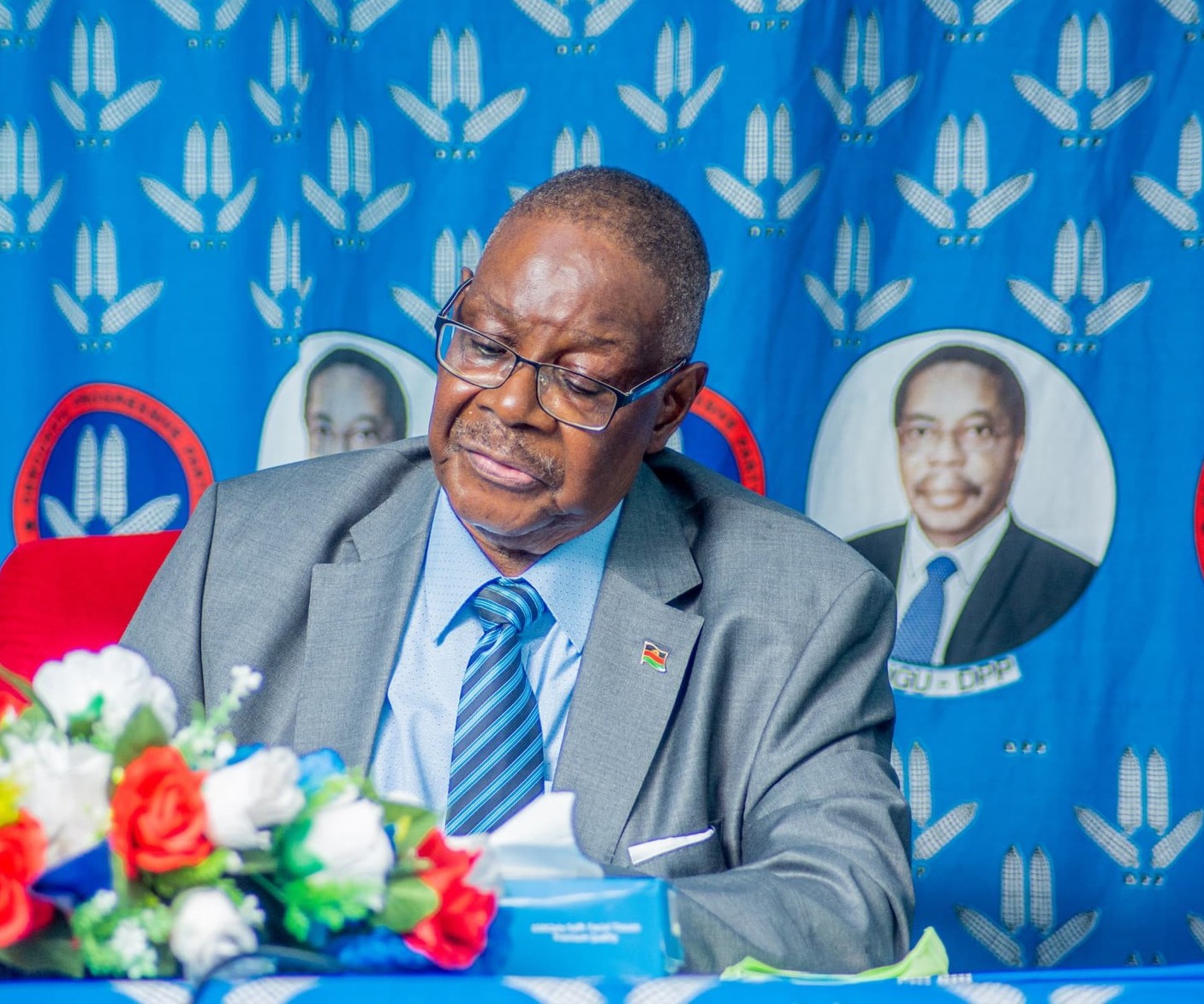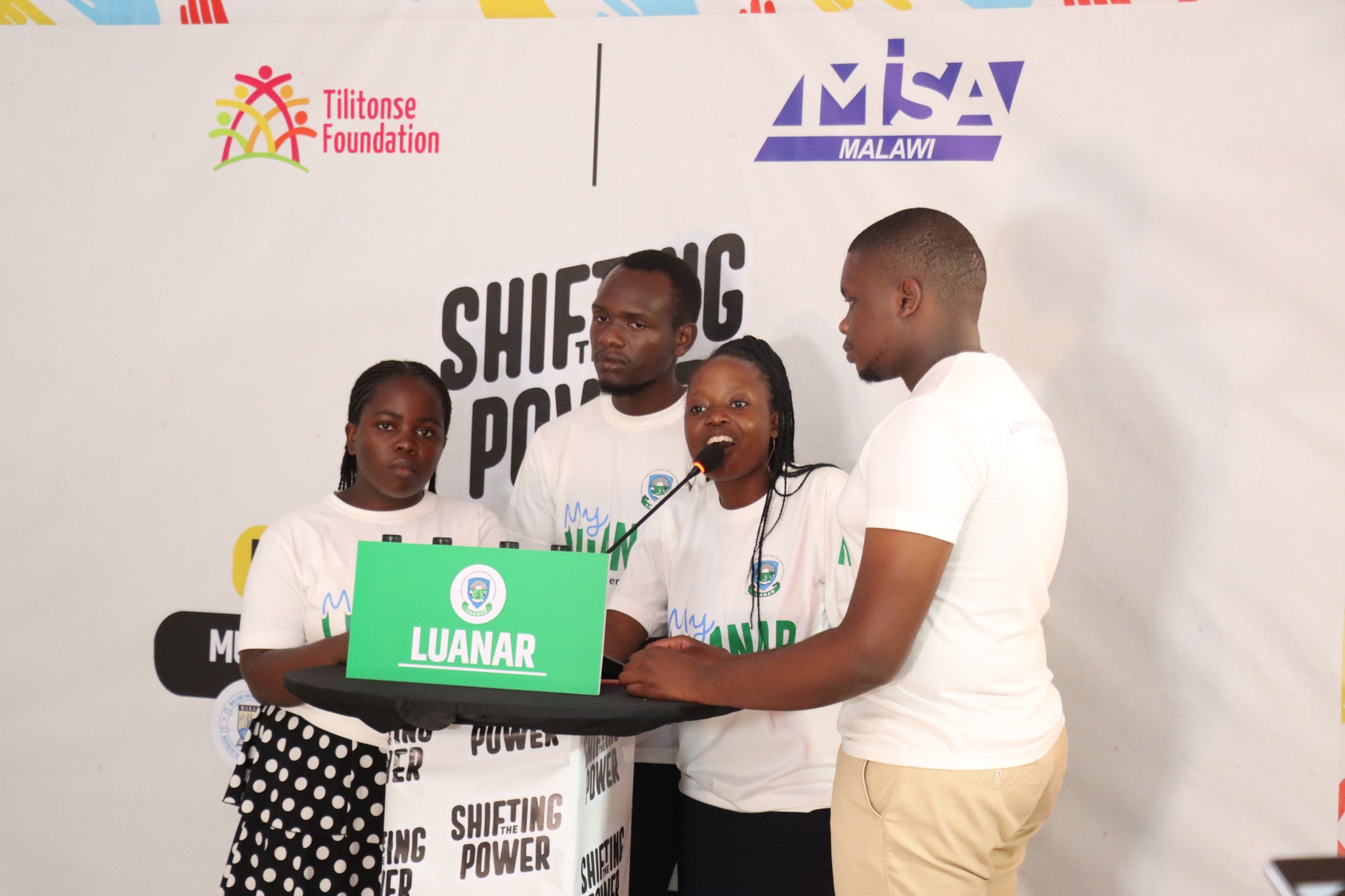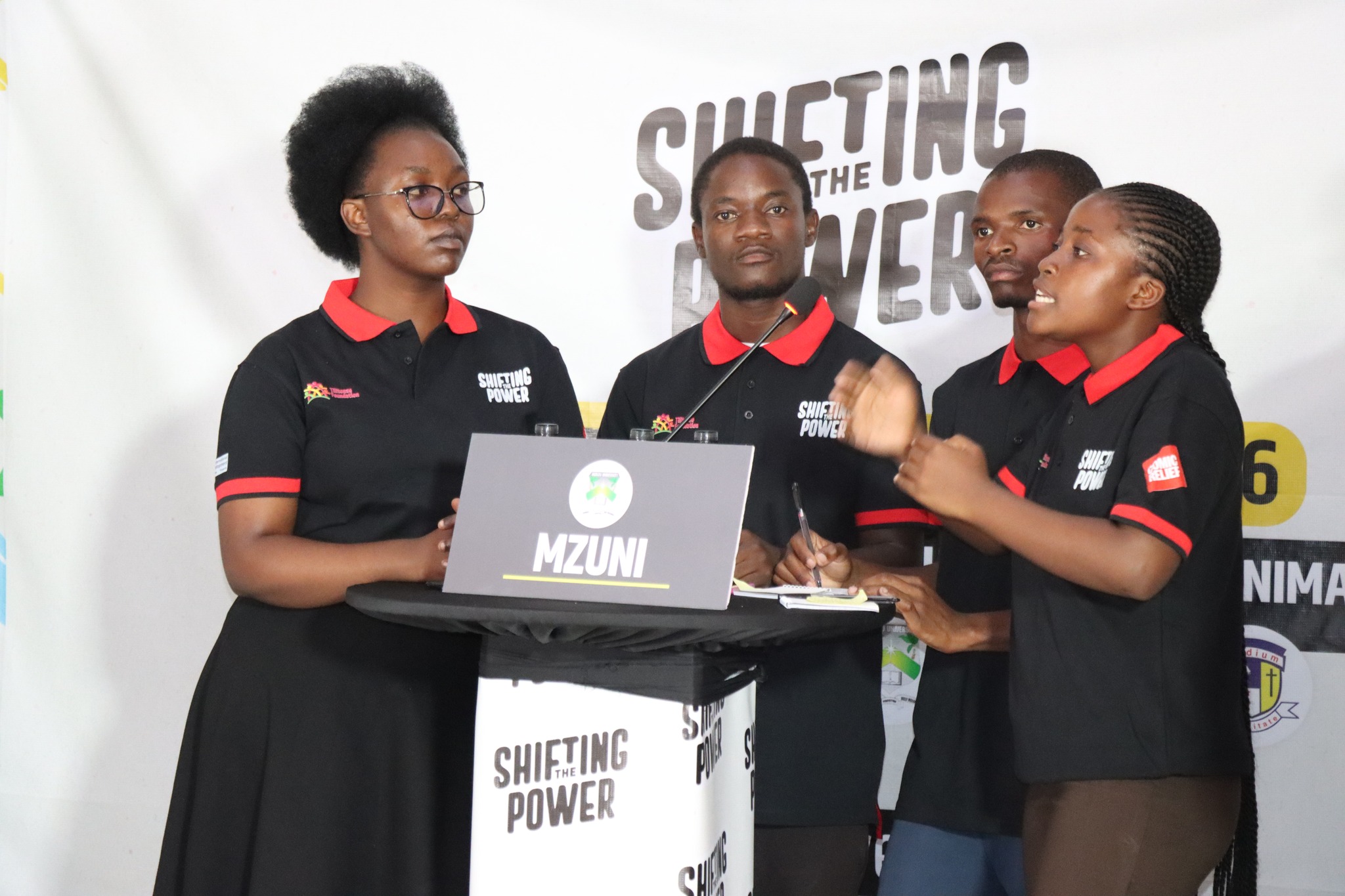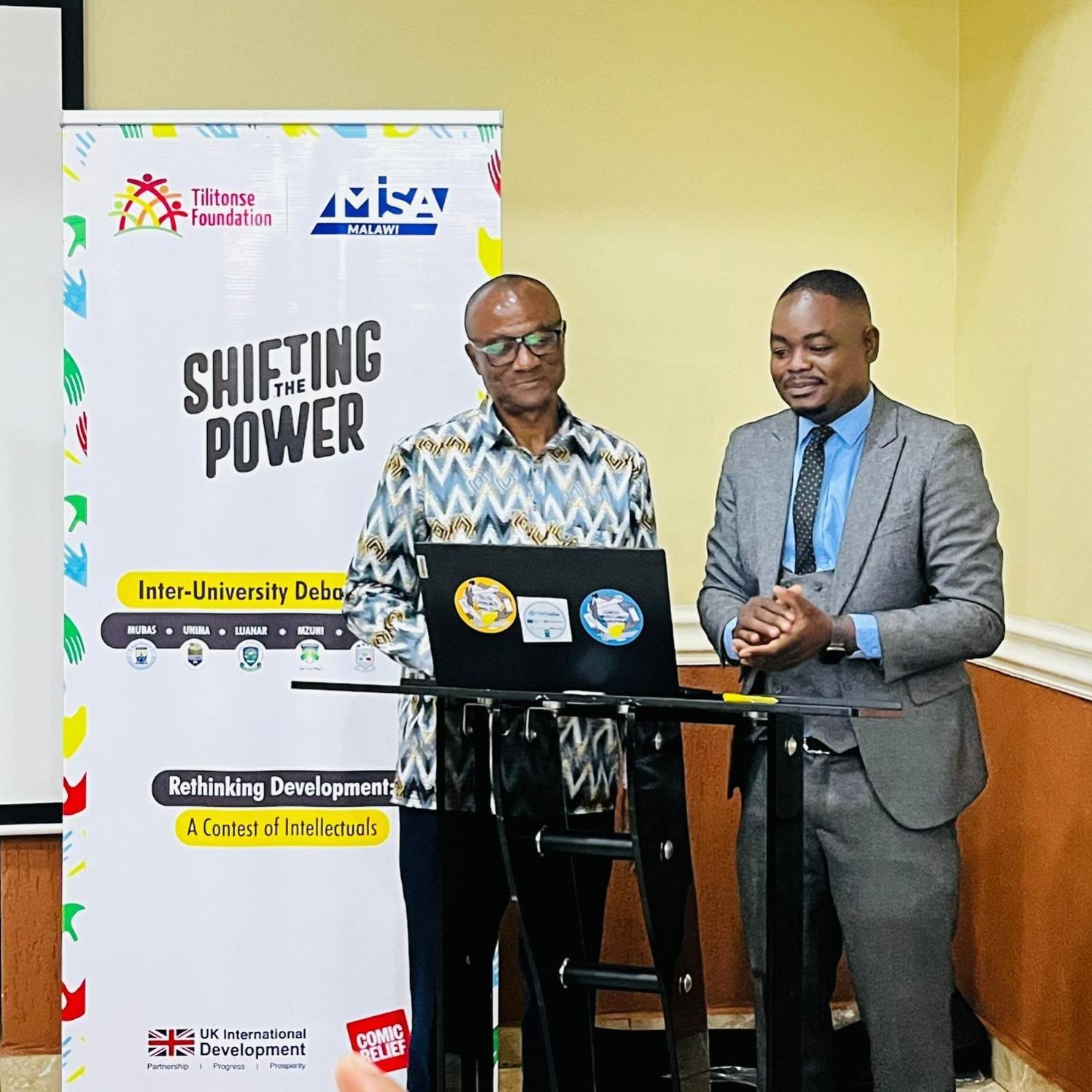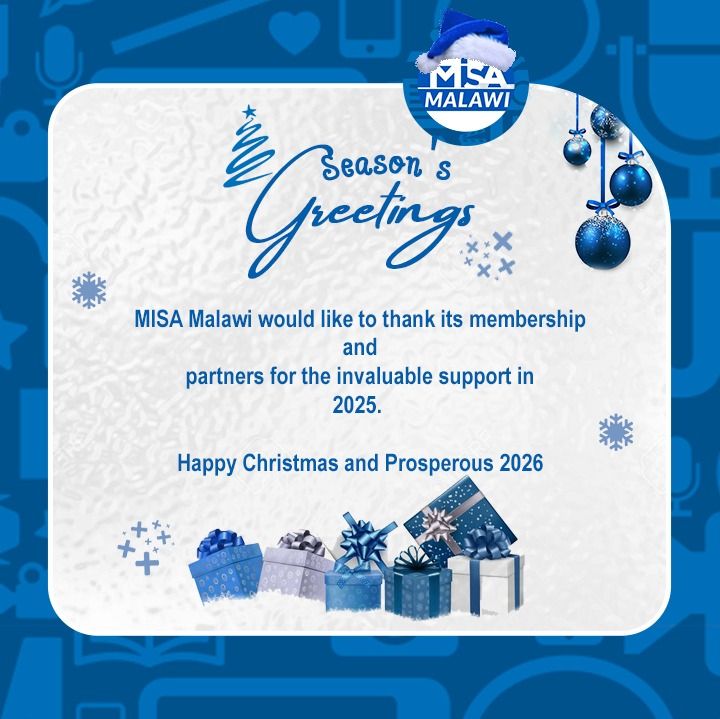The Media Institute of Southern Africa (MISA) Malawi Chapter would like to congratulate President-elect Arthur Peter Mutharika for winning the September 16, 2025, Presidential race.
We would also like to commend President Lazarus Chakwera for conceding defeat and for congratulating Mutharika on his victory.
As the country celebrates this moment, we would like to note some highlights of the Chakwera administration to provide context for our expectations as APM re-assumes the leadership of the country.
We commend President Chakwera for:
- Setting the implementation date for the Access to Information Act, enacted by the Mutharika administration in 2017 but implementation delayed until the Chakwera Administration assumed office and set September 20, 2020 as the commencement date for the Act.
- Repealing the Protected Flag, Emblem and Names Act in 2022. The Chakwera Administration dropped the word ‘President’ as a protected name under the Act. This was a commendable development for Freedom of Expression as it is no longer a crime under the Act for comments others might deem offensive to the President.
- Creating a platform for engagement with the media and supporting media bodies championing media freedom. The Chakwera Administration created a platform for media and government engagement during World Press Freedom Day celebrations. The Media and Presidential Breakfast Engagements provided space for dialogue between the media and the Presidency. The engagements also strengthened collaboration and linkages between State House Press office and the media which ought to be maintained.
- The MACRA re-farming exercise, which created space and opportunity for the country to have more players in the broadcasting sector. Broadcasting remains the most readily available and accessible platform for access to information for the majority of Malawians and the exercise should be understood and appreciated as a commendable exercise from that perspective.
- Decriminalization of Freedom of Expression with the scraping off of criminal libel by the Constitutional Court. Although the Chakwera Administration defended criminal libel and wanted our statutes to maintain this law (Section 200 of the Penal Code) we commend the Administration for accepting and respecting the ruling. We also applaud the Constitutional Court for the landmark decision which safeguarded our democracy.
That said, the Chakwera Administration needed to do better on a number of areas:
- Funding for implementation and oversight for the Access to Information Act. Although the administration set the commencement date for the ATI Act, little has been done to support the Human Rights Commission to effectively oversee implementation of the Act. The Commission needs sufficient resources to effectively perform its oversight mandate, which hasn’t been the case since implementation of the legislation started.
- Security, arrest and prosecution of people responsible for violence and attacks on human rights defenders. The country witnessed blatant attacks on human rights defenders in the presence of law enforcers, which was a retrogressive and barbaric moment for free expression for the country. The administration did little to condemn, arrest and prosecute the perpetrators. The attacks and lack of action by the administration had a chilling effect on Malawians and projected a bad image of the country, the administration and our security bodies at the international stage.
- Exorbitant licensing regime for the broadcasting sector. Although the administration implemented commendable initiatives to promote broadcasting, the licensing regime is prohibitive and retrogressive for the very sector government wants to promote. Broadcasting license fees are pegged to the USD when the country’s economy is struggling and the exchange rate unstable. The period witnessed the closure of several broadcasting outlets and delays by most outlets to remit license fees. Over 15 broadcasters have been closed since 2022 with over 250 journalists losing their jobs in the process.
- Onslaught on media freedom during the electoral period. Attempts to silence the media during the results announcement period were rampart and retrogressive. MISA received several reports that MACRA and State House officials were calling stations and outlets to stop airing ‘unofficial results’ of the elections. A number of outlets were broadcasting dashboards of the unofficial results and they were pressured to stop. Some broadcasters were also taken off air for alleged non-payment of co-siting fees, which raised questions on the timing of the actions. These attempts to silence the media created room for misinformation and were a fragrant violation of media freedom and ought to be condemned.
- Lack of independence of the public broadcaster. The Malawi Broadcasting Corporation (MBC) continued to favor the ruling party despite numerous attempts by MISA and other stakeholders to transform the outlet from a mouth piece of the party in power and government into a public broadcaster.
The in-coming APM administration has a responsibility to continue the good work and address the gaps to safeguard media freedom and broader human rights as provided for in our Constitution.
Our expectations:
- Respect and uphold media freedom and freedom of expression. The new administration should uphold the Constitution and prosecute all those responsible for attacking human rights defenders. The Police should also be supported to do its job without fear or favor or any form of interference.
- State officials or agents of the State should not interfere with the work of the media. The media, public, private and community, should be left to do their work without undue restrictions. Section 36 of the Constitution provides for media freedom and any interference with the work of the media constitute a breach of their right to ‘report’… In addition, such interference also impairs the right of readers, listeners and viewers to receive information and ideas. Thus two sets of rights are violated when there is interference with dissemination of information/ideas from the media to the public.
- Review of the broadcasting licensing regime. The APM administration should review the broadcasting licensing regime and ensure that broadcasters pay their fees in Malawi Kwacha. MACRA annual content license fees for community radio stations are set at US$100, regional ones US$1,500 while national broadcasters (including television stations) are charged US$5,000. Apart from paying MACRA, radio stations incur costs for co-siting on towers managed by telecommunications companies. On their part, television stations are required to pay fees to the Malawi Digital Broadcast Network Limited (MDBNL) for signal distribution (transmission of their content).
- Ensure MBC independence. MBC is always abused by the ruling party and staff at the broadcaster are always victimized and ridiculed when ruling parties change. This is a huge lesson to MBC staff to always remain professional and independent but it also casts the spotlight on the need to ensure MBC independence legally and in practice. Politicians should stop abusing the broadcaster. The APM Administration should adopt laws and policies that ensure MBC independence and job security for MBC Director General and Senior Staff. MBC and MACRA Boards should not be appointed by the President but an independent multistakeholder body, with clear job safeguards for the Board and Senior MBC Staff. We also call on the APM Administration to ensure that no MBC Staff is victimized for the crimes of the Chakwera Administration.
- Funding for the Human Rights Commission to effectively oversee implementation of the ATI Act. It is not enough to enact or adopt progressive laws and policies, government should demonstrate political will in the enforcement/ implementation of these progressive laws and policies by providing the necessary support to the implementation process. Government should provide the necessary support to the Human Rights Commission as a commitment and demonstration of support towards access to information
The right to know is a fundamental right and the touchstone of other rights. The media plays a crucial role in the exercise of this right and the country’s laws and practices should not undermine and stifle but facilitate the enjoyment of this right.
The media should be supported to ensure free flow of information and the sector, despite the challenges above, has done a commendable job covering the elections and we would like to thank and congratulate our membership for successfully providing up-to-date and accurate information to Malawians during the period.
We would like to appeal to the membership to continue with this good work and ensure that we continue to report to the best of our abilities without fear or favor.
Lastly, we would also like to appeal to all Malawians to access credible and trusted media sources for information and to check with MISA’s iVerify platform for any alleged misinformation. You can also send us reports for verification on https://malawi.i-verify.org/submit-a-story/ or WhatsApp +265885587825.
For feedback
MISA Malawi Chairperson Golden Matonga
Cell: +265 99 616 9705 or email goldenmatonga@gmail.com
MISA Malawi National Director Aubrey Chikungwa
Cell: +265 999 327 311 or email info@misamalawi.org




